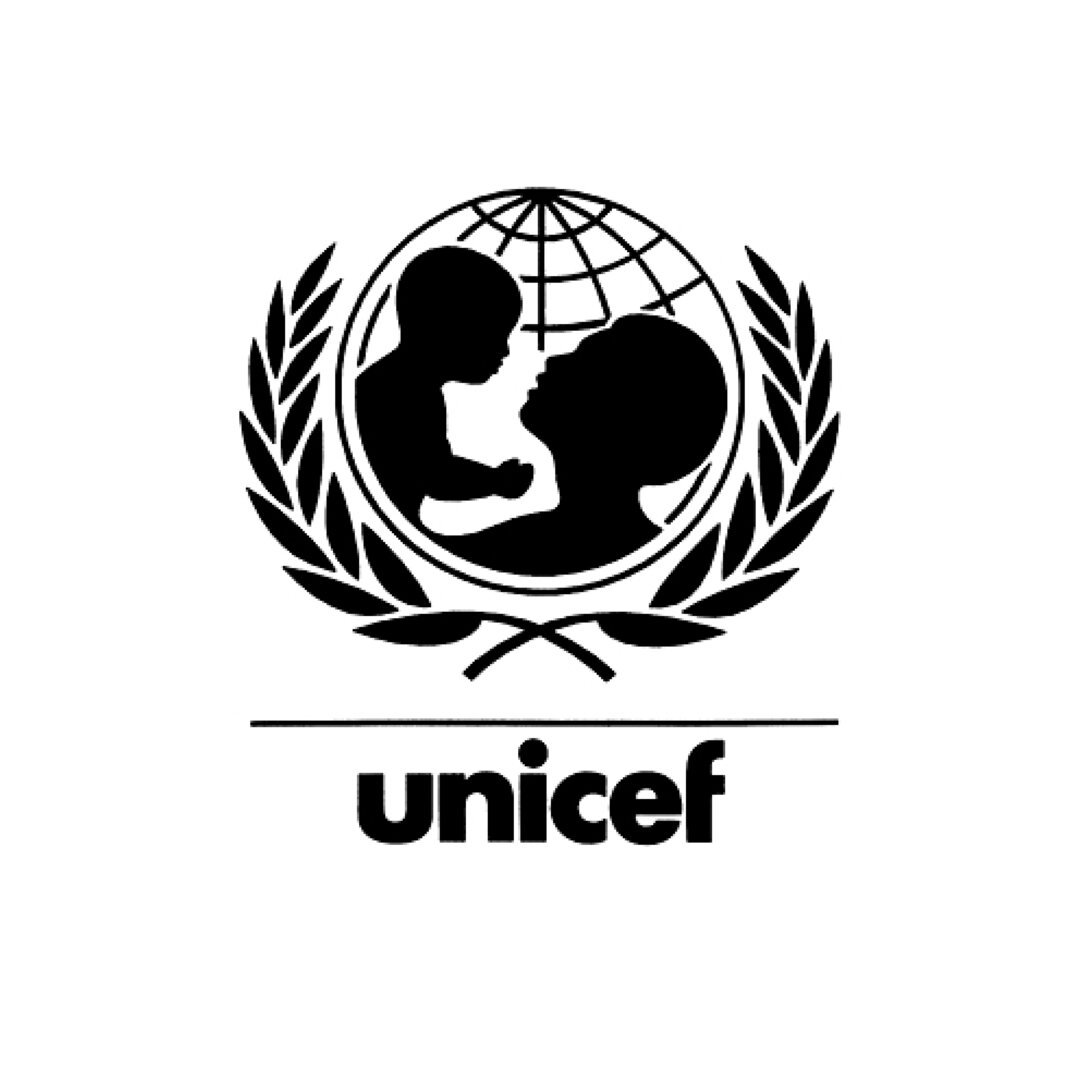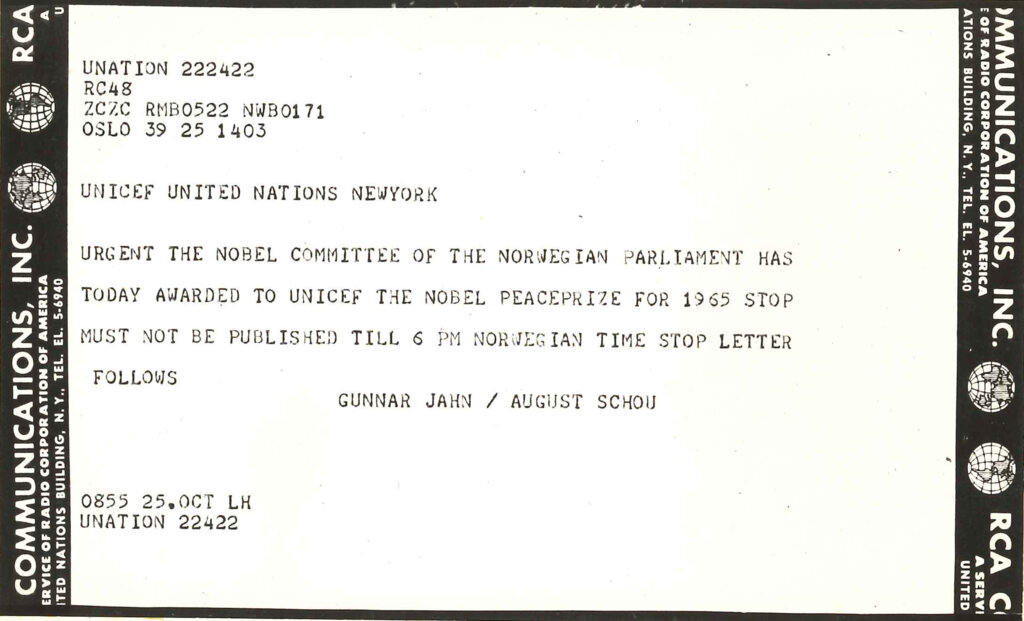United Nations Children's Fund
Speed read
UNICEF was awarded the Nobel Peace Prize for its efforts to provide humanitarian aid for children in need and promote children’s right to health, education and well-being.

Full name: United Nations Children’s Fund
Native name: United Nations Children’s Fund
Founded: 1946, New York, NY, USA
Date awarded: 25 October 1965
From temporary to permanent
The United Nations International Children’s Emergency Fund (UNICEF) was founded in 1946. At its inception, UNICEF’s main task was to provide food, clothing and medicine to children and mothers in the war-torn regions of China, Europe and Palestine. In the 1950s, UNICEF turned its focus to countries in need of development cooperation. It spread nutrition information, distributed vitamin-rich food and fought disease. It also built thousands of health stations in developing countries and provided schooling for children and young people. The 1959 UN Declaration of the Rights of the Child strengthened the foundation for UNICEF activities. According to the Norwegian Nobel Committee, UNICEF’s activities represented a breakthrough for the concept of solidarity between nations, thereby helping to reduce the gap between wealthy and impoverished nations, and diminishing the risk of war.
"Services for the child should be taken for granted as a vitally important aspect of government responsibility to ensure economic viability, progress and stability."
Zena Harman, Nobel Prize lecture, 11 December 1965.

"What is most important is that for the first time in history we possess an international device capable of tackling the giant task of liberating the children of the developing countries – who are, all of them, our joint responsibility – from ignorance, disease, malnutrition, and starvation."
Aase Lionæs, Presentation Speech, 10 December 1965.
National committees for UNICEF
UNICEF receives no permanent funding from the UN, relying instead on voluntary financial support from governments, private individuals and organisations. At the turn of this century, roughly one-fourth of UNICEF’s income came from private donations. UNICEF’s national committees sell postcards and gift items, organise fundraising events and administer gifts received from individual supporters. Many committees also provide extensive information on UNICEF’s activities, especially vis-à-vis schools.
Children’s rights – an important element of international law
The 1959 UN Declaration of the Rights of the Child strengthened the foundation for UNICEF’s activities. It established that all children have a right to a safe upbringing, good nutrition, housing, education and protection from any form of neglect, cruelty or exploitation. The declaration was followed in 1989 by the Convention on the Rights of the Child.
"Children are born to peace. And it is in the children that the seed to an everlasting peace must be sown."
Danny Kaye, in the Norwegian newspaper Aftenposten, 11 December 1965.
Learn more
Read the history of the United Nations Children's Fund.
Disclaimer: Every effort has been made by the publisher to credit organisations and individuals with regard to the supply of photographs. Please notify the publishers regarding corrections.
Nobel Prizes and laureates
Six prizes were awarded for achievements that have conferred the greatest benefit to humankind. The 14 laureates' work and discoveries range from quantum tunnelling to promoting democratic rights.
See them all presented here.
